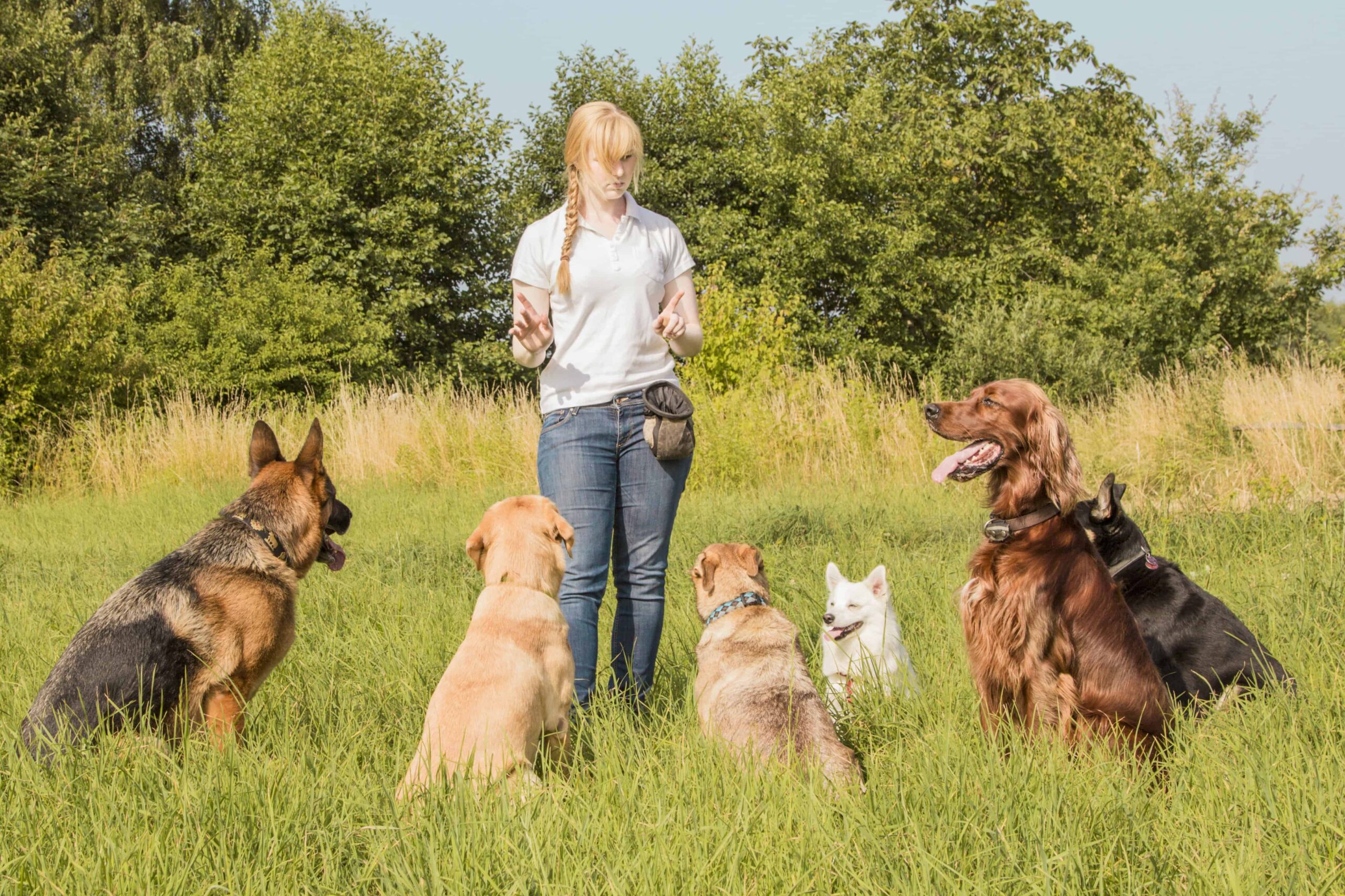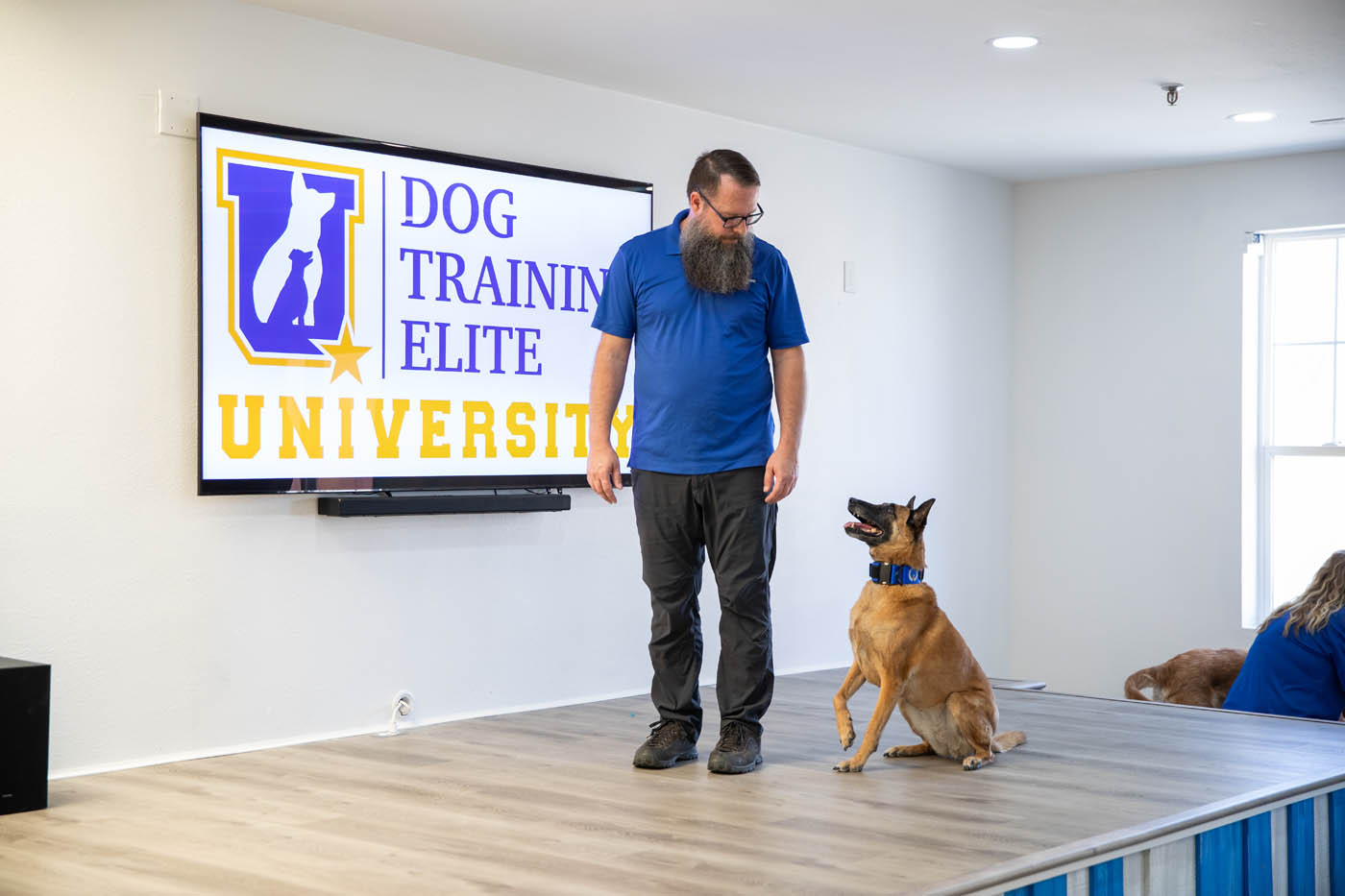Discovering Choices for Dog Training Charlotte: What You Required to Know
Unlock Your Dog's Potential: Proven Dog Training Techniques for Success
Reliable pet dog training is a nuanced procedure that pivots on comprehending canine habits and using medically backed methods. By integrating favorable reinforcement, developing clear commands, and focusing on socializing, canine owners can grow an efficient partnership with their animals.
Understanding Pet Dog Actions
Recognizing pet dog behavior is crucial for effective training and fostering a favorable relationship in between canines and their proprietors. A detailed understanding of canine body movement, articulations, and social communications is essential for acknowledging their demands and feelings. Dogs connect largely through non-verbal hints; for instance, a wagging tail may suggest exhilaration, while pinned ears can signify worry or entry.

Additionally, ecological elements play a considerable function in shaping a pet's actions. Changes in routine, brand-new environments, or the visibility of strange people can lead to stress and anxiety or anxiousness in pets. Acknowledging these triggers enables owners to minimize adverse responses and create suitable training methods.
Eventually, a deep understanding of pet dog habits lays the structure for effective training techniques, improving both habits and the overall bond in between the pet and its proprietor. dog training charlotte. This knowledge is vital for fostering a well-adjusted, delighted canine friend
Favorable Support Techniques
Reliable training relies greatly on favorable reinforcement strategies, which have been revealed to produce significant lead to shaping preferred behaviors in pet dogs. This method entails rewarding a canine for displaying details habits, therefore boosting the likelihood that these habits will certainly be repeated. Benefits can take various types, consisting of treats, appreciation, playthings, or playtime, depending upon what encourages the private pet.

It is necessary to gradually terminate benefits as the canine finds out the actions, transitioning to periodic reinforcement. This approach preserves the behavior with time while stopping dependency on constant benefits. By concentrating on favorable reinforcement, trainers can grow a trusting partnership with their canines, advertising a participating and healthy training atmosphere that enhances total obedience and performance.
Developing Regular Commands
An essential facet of effective dog training is the facility of consistent commands. Uniformity in commands is important for reliable communication in between the pet dog and the trainer. When commands are uniform, dogs learn to associate specific words with desired habits, which speeds up the training procedure and boosts understanding.
To develop regular commands, it is necessary that all relative use the very same terminology and gestures. If one person makes use of "rest" while another states "rest down," it can develop complication for the dog. Select clear, unique words for commands and make certain everyone associated with the pet's training sticks to these options.
Reinforce commands through frequent practice, ensuring that the dog obtains enough possibilities to respond correctly. When a dog successfully follows a command, immediate positive reinforcement should follow.
Last but not least, be patient. Developing regular commands takes time and effort. With devotion and quality, you will assist your pet dog establish a solid understanding of expectations, ultimately leading to a mannerly friend.
Socialization and Exposure
Mingling a pet dog is crucial for fostering a well-adjusted imp source and confident buddy. This process entails exposing your pet to a range of environments, individuals, and other animals to develop their social skills and adaptability. Early socializing, ideally between the ages of 3 to fourteen weeks, is vital, as it prepares for a dog's future actions.
During socializing, goal to provide favorable experiences in different setups, such as parks, hectic streets, and homes with other pet dogs. Introduce your dog to various stimulations, consisting of audios, views, and smells, making sure that each encounter is satisfying. This exposure assists reduce worry and anxiousness, paving the way for an extra durable dog.
Involving in regulated team play sessions with other dogs can also enhance social skills, instructing your family pet ideal communications and borders. Focusing on socializing will significantly contribute to your dog's overall happiness and habits throughout their life.
Conquering Common Educating Difficulties

Canines may battle to concentrate in busy or unknown settings. Gradually desensitize your pet to distractions by beginning training in a silent setting and slowly introducing more stimuli as they become efficient.
Additionally, behavioral problems like jumping or too much barking can become frustrating. Address these by instructing different actions, such as sitting comfortably when welcoming guests. Uniformity and perseverance are crucial; strengthen preferred actions consistently and avoid scolding, which can result in confusion.
Finally, recognize that each dog is unique, and training timelines might differ. Tailor your technique to your dog's specific needs, and seek specialist assistance if required. With perseverance and the best techniques, getting rid of these difficulties can result in a trained, happy canine companion.
Conclusion
In conclusion, opening a pet's potential necessitates a detailed approach that includes an understanding of canine habits, the application of favorable support methods, and the facility of consistent commands. Early socialization and direct exposure to varied atmospheres further improve a dog's flexibility and self-confidence. By dealing with common training difficulties with tailored methods and persistence, a harmonious and cooperative partnership in between dog and try this website handler can be cultivated, inevitably leading to a well-behaved buddy capable of thriving in various bulldog puppy training scenarios.
Reliable canine training is a nuanced process that hinges on recognizing canine behavior and utilizing scientifically backed techniques.Comprehending canine habits is essential for effective training and fostering a positive partnership in between pets and their owners.Reliable training relies heavily on positive reinforcement techniques, which have actually been shown to yield substantial results in forming wanted behaviors in pet dogs. When commands are consistent, canines discover to associate certain words with desired behaviors, which accelerates the training procedure and enhances understanding.
In verdict, unlocking a pet dog's prospective necessitates an extensive technique that integrates an understanding of canine actions, the application of positive support techniques, and the establishment of consistent commands.